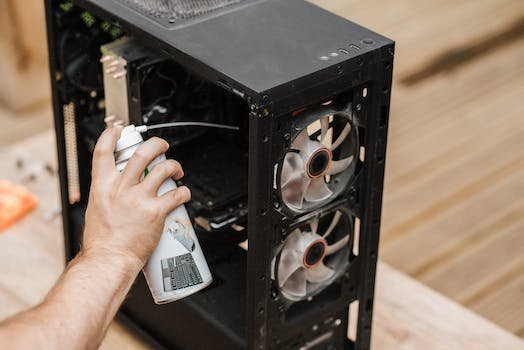Maintenance Tips for Gardner Denver Air Compressors
When it comes to keeping your Gardner Denver air compressor running smoothly, regular maintenance is key. Just like a well-oiled machine, your air compressor needs attention and care to ensure optimal performance and longevity. In this article, we will explore some essential maintenance tips that will help you keep your Gardner Denver air compressor in top shape.
1. Regularly Check and Change the Oil
One of the most important maintenance tasks for your Gardner Denver air compressor is checking and changing the oil. Just like the engine in your car, the oil in your air compressor lubricates the moving parts and helps reduce friction and wear. Over time, the oil can become dirty and lose its effectiveness, so it’s crucial to check and change it regularly.
Start by checking the oil level on a weekly basis. Make sure the compressor is turned off and cool before removing the oil cap and checking the level. If the oil level is low, add the recommended oil type until it reaches the proper level. Additionally, it’s important to change the oil every 500 hours of operation or as recommended by the manufacturer. This will help ensure that your air compressor continues to operate smoothly and efficiently.
2. Clean or Replace the Air Filter
The air filter in your Gardner Denver air compressor plays a vital role in keeping the air clean and free from contaminants. Over time, the air filter can become clogged with dust, dirt, and debris, which can restrict airflow and reduce the efficiency of your compressor. Therefore, it’s essential to clean or replace the air filter regularly.
Start by checking the air filter every month and clean it if necessary. To clean the air filter, remove it from the compressor and gently tap it to remove any loose dirt or debris. If the filter is heavily clogged, it’s best to replace it with a new one. A clean and properly functioning air filter will help your air compressor perform at its best and prevent unnecessary strain on the system.
3. Inspect and Tighten Connections
Another important maintenance tip for your Gardner Denver air compressor is to regularly inspect and tighten the connections. Over time, vibrations and normal wear and tear can cause connections to loosen, leading to air leaks and decreased performance. Therefore, it’s crucial to inspect all the connections and fittings regularly.
Start by visually inspecting the connections for any signs of leaks or damage. If you notice any leaks, tighten the connections using a wrench or other appropriate tool. Additionally, it’s a good idea to check the connections for tightness every few months, even if there are no visible signs of leaks. This will help prevent any potential issues and ensure that your air compressor operates at its full potential.
4. Keep the Compressor Clean
A clean air compressor is a happy air compressor. Dust, dirt, and debris can accumulate on the exterior and interior components of your Gardner Denver air compressor, affecting its performance and efficiency. Therefore, it’s important to keep your compressor clean.
Start by regularly wiping down the exterior of the compressor with a clean cloth or sponge. This will help remove any dust or dirt that may have accumulated. Additionally, it’s a good idea to clean the interior components of the compressor, such as the cooling fins and fan blades, every few months. Use a soft brush or compressed air to remove any debris that may have built up. Keeping your air compressor clean will not only improve its performance but also extend its lifespan.
Conclusion
Maintaining your Gardner Denver air compressor doesn’t have to be a daunting task. By following these simple maintenance tips, you can ensure that your air compressor operates at its best and lasts for years to come. Remember to regularly check and change the oil, clean or replace the air filter, inspect and tighten connections, and keep the compressor clean. By taking care of your air compressor, you’ll enjoy reliable performance and avoid costly repairs.
FAQs
1. How often should I check the oil in my Gardner Denver air compressor?
You should check the oil level in your Gardner Denver air compressor on a weekly basis. If the oil level is low, add the recommended oil type until it reaches the proper level.
2. How often should I change the oil in my Gardner Denver air compressor?
It’s recommended to change the oil in your Gardner Denver air compressor every 500 hours of operation or as recommended by the manufacturer.
3. How often should I clean or replace the air filter in my Gardner Denver air compressor?
You should check the air filter in your Gardner Denver air compressor every month and clean it if necessary. If the filter is heavily clogged, it’s best to replace it with a new one.
4. How often should I inspect and tighten the connections in my Gardner Denver air compressor?
It’s a good idea to visually inspect the connections in your Gardner Denver air compressor regularly for any signs of leaks or damage. Additionally, it’s recommended to check the connections for tightness every few months, even if there are no visible signs of leaks.

